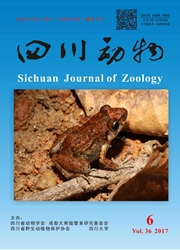

 中文摘要:
中文摘要:
发声学习在人类语言形成中起着重要作用.非人类动物中,鸟类最早被发现具有发声学习能力.近年来在少数哺乳动物中也发现了这种现象,人们希望通过对不同动物类群发声学习的比较研究来揭示人类语言的起源.同时,由于鸟类和哺乳类的发声学习能够简化和缩短声信号的遗传过程,更快引起发声行为的进化,对其配偶选择、生态适应等具有重要意义,因此,发声学习也是行为生态学和进化生物学长期以来的研究热点.本文概述了鸟类和哺乳类发声学习的研究进展;归纳总结了动物发声学习的起源和维持机制;在分析研究现状的基础上,提出了未来的研究重点;旨在提高人们对动物发声学习研究进展的认知,以期对未来的研究提供帮助.
 英文摘要:
英文摘要:
Vocal learning plays an important role in human language development and evolution. Songbirds are one of the few groups of non-human organisms that are capable of developing vocal learning. Vocal learning behaviors have also been noted in several mammals. Studies on diverse avian and mammalian taxa can help to reveal the origins of human language. For birds and mammals, vocal learning is very important for their reproduction and survival, e. g., mate selection and eco-logical adaptation. These strong selective pressures can cause rapid evolution of vocal traits, making vocal learning an im-portant field of study in behavioral ecology and evolutionary biology. Here, we review the research progress of vocal learning in birds and mammals, and summarize the origin and maintenance of these traits, and finally, the research prospects are put forward. This work will provide guidance for further advanced research in vocal learning.
 同期刊论文项目
同期刊论文项目
 同项目期刊论文
同项目期刊论文
 期刊信息
期刊信息
